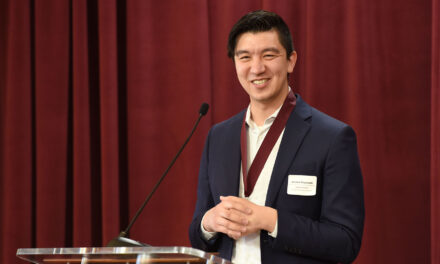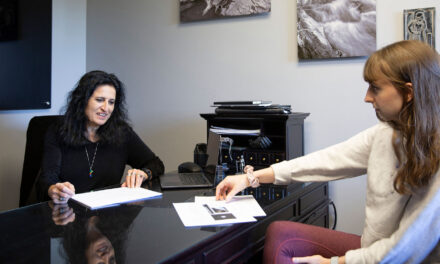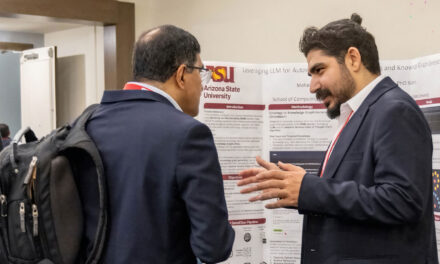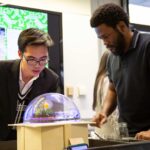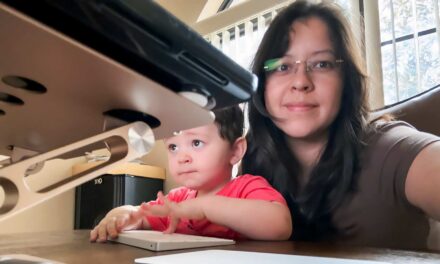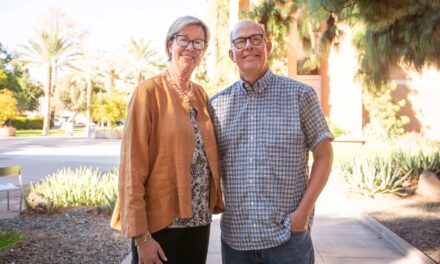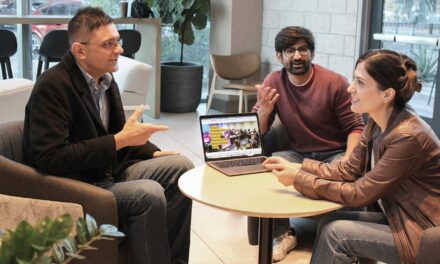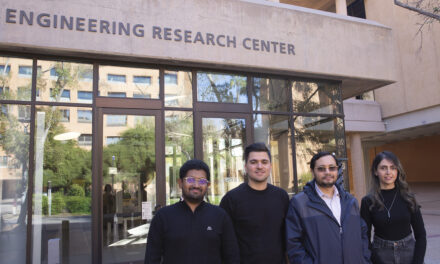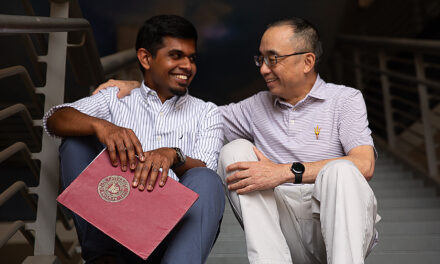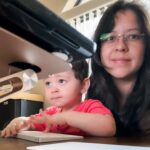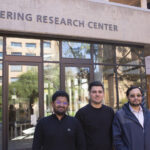
Building proteins to counteract cancer
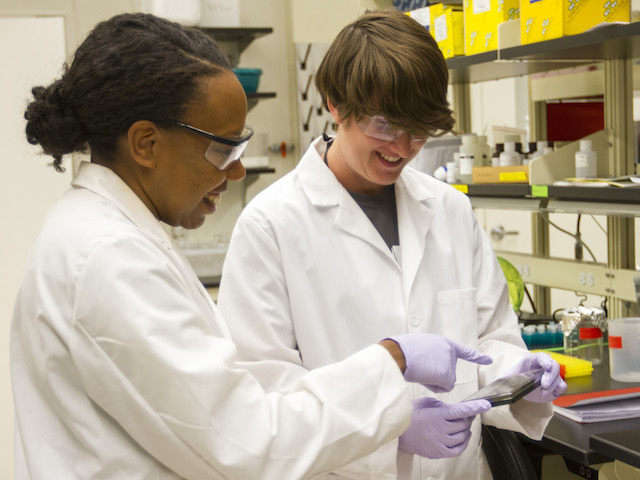
Karmella Haynes (left) is leading research to explore the capability of genetically engineered proteins to reactivate tumor suppressors inside body cells to prevent the onset of cancer, or arrest its development. Photo by Jessica Hochreiter/ASU.
Karmella Haynes wants to help the body fight cancer by designing proteins to stop the disease.
Haynes, a synthetic biologist at Arizona State University, is leading research to explore the capability of genetically engineered proteins to reactivate tumor suppressors inside body cells to prevent the onset of cancer, or arrest its development.
“We can make synthetic proteins and reprogram them to turn on natural tumor suppressors in cells that have been de-activated,” said Haynes, an assistant professor in the School of Biological and Health Systems Engineering, one of ASU’s Ira A. Fulton Schools of Engineering.
Cancer can set in when certain genes in the nucleus of cells lose their ability to restrain tumor development. That happens when chromatin – DNA and proteins that are folded together in chromosomes – becomes overactive. Cancer causes too many folding proteins to be produced – the tumor-restraining genes are folded too much, making these important genes lose their ability to function properly.
“We have the ability to build new synthetic proteins by borrowing pieces of the natural DNA-folding proteins. The new synthetic proteins are designed to counteract cancer-associated chromatin folding,” Haynes explained.
Supported by a grant from National Cancer Institute through the National Institutes of Health (NIH), she is working on a technique for effectively introducing the engineered proteins into chromatin structures.
The new proteins would be programmed to attach to genes in a manner that should restore the tumor-suppressing function “and start killing cancer cells,” she said.
Haynes will be aided by fellow ASU researchers.
Mark Spano, a research professor in the School of Biological and Health Systems Engineering, will do the computing work to develop the modeling Haynes will need to predict the behavior of cells in growing cell populations.
Joshua LaBaer, professor of chemistry and biochemistry and director of the Virginia G. Piper Center for Personalized Diagnostics at ASU’s Biodesign Institute, will provide expertise in proteomics, genomics and use of big data.
The NIH grant – providing $390,000 over three years – will also enable Haynes to work with a mentor from Harvard Medical School. She will be advised by Pamela Silver, a professor of systems biology and a globally recognized leader in synthetic biology.
Media Contact
Joe Kullman, joe.kullman@asu.edu
480-965-8122
Ira A. Fulton Schools of Engineering


